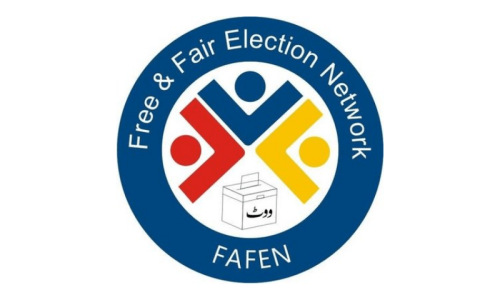KARACHI: Emphasising the need for early screening and vaccination, experts at a seminar shared that hepatitis B was a serious public health threat in Pakistan with around 2.5 per cent of the population suffering from it.
The seminar titled “Let’s Get Rid of Hepatitis B” was organised by Ward 7 of the Jinnah Postgraduate Medical Centre (JPMC) at Jinnah Sindh Medical University (JSMU) in collaboration with the Department of Continuous Medical Education.
Speaking on the subject, experts shared that hepatitis B affected 296 million people worldwide, including over six million children under the age of five.
“Every year, hepatitis B kills approximately 820,000 people. Hepatitis is a preventable disease and a vaccine is available to prevent hepatitis B,” Sindh Medical College Principal and Ward 7 head Prof Masroor Ahmed said.
2.5pc of country’s population suffering from the infection, seminar told
JSMU Vice Chancellor Prof Amjad Siraj Memon spoke about the accuracy of diagnosing and monitoring the illness.
“It may not always be possible through ultrasound imaging alone. In such instances, alternative diagnostic methods or careful treatment approaches could be more suitable,” he said.
According to Prof Nasir Luck, senior gastroenterologist at the Sindh Institute of Urology and Transplantation (SIUT), the therapy’s primary goal is to enhance both survival and quality of life by preventing the progression of the disease, slowing down the advancement of cirrhosis, decreasing the occurrence of liver cancer and ultimately improving long-term survival outcomes.
“This comprehensive approach aims to manage the condition effectively by enhancing the overall wellbeing of patients,” he noted.
Prof Nasir also shared that the World Health Organisation (WHO) had adopted a global hepatitis strategy with the aim of eliminating viral hepatitis as a public health threat by 2030.
“This target entails a 90 perc ent reduction in new cases of chronic hepatitis B and C and a 65 per cent reduction in mortality by these infections,” he said.
Dr Zeeshan Ali Junejo, associate professor of medicine at the JSMU, and head of Medical Unit 4 and Medical Intensive Care Unit at the JPMC, stated that hepatitis could affect pregnant and breastfeeding women.
“Pregnant women should be screened for hepatitis B to prevent transmission to the baby. Breastfeeding is usually safe for women with hepatitis B if the baby receives the necessary vaccinations,” he added.
He underscored the need for consulting a healthcare provider for personalised advice on managing hepatitis during pregnancy and breastfeeding.
Senior gastroenterologist Prof Bader Fayyaz Zubairi emphasised that prevention was essential. He requested all medical students and healthcare workers to get vaccinated.
Part of the initiative was a hepatitis camp set up by the Institute of Family Medicine-JSMU in collaboration with the Hepatitis Prevention and Control Programme and JPMC.
Published in Dawn, March 8th, 2024












































Dear visitor, the comments section is undergoing an overhaul and will return soon.